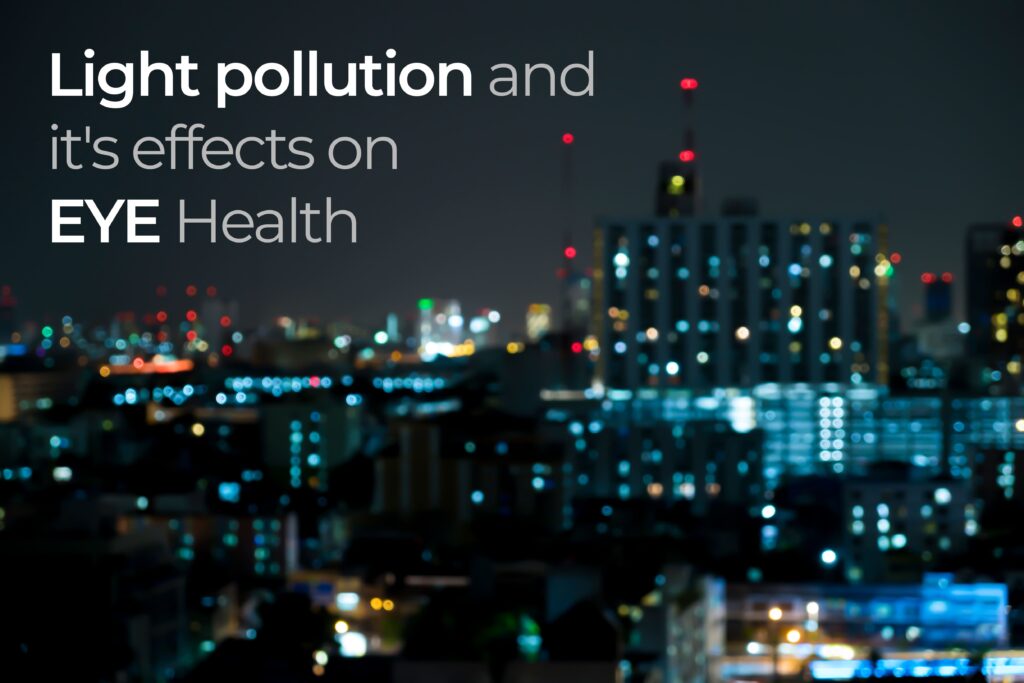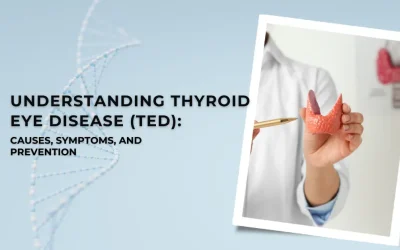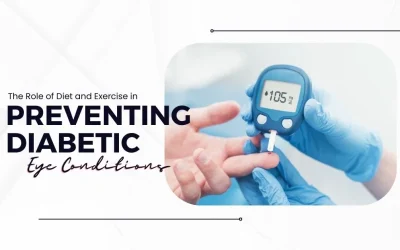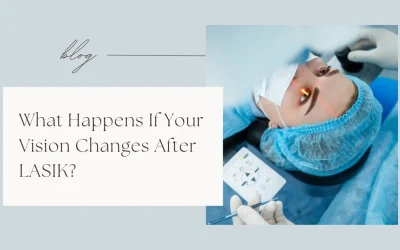Light pollution and its effects on our eye health

This may be the first time you have heard the term light pollution. You may think, how can one pollute light. Well, that’s not the issue here, as excessive light itself is the pollution. In this context, light means artificial light invented by humans, not natural light. Anything created by humans for their comfort and convenience will cause pollution and degrade the environment.
Artificial light is among them. Since the invention of artificial lights, even nights are becoming brighter like the day. We are using artificial lights for convenience, creating certain health issues for humans and other animals.
The evolving information about light pollution and its effects including minor eye procedures can be accessed easily at the best eye care hospital in Hyderabad, which is a simple and user-friendly centre for eye care.
![Sky glow by city lights [ Light pollution ] | Global Eye Hospital](https://globaleyehospital.com/wp-content/uploads/2022/06/Sky-glow-by-citiy-lights-Light-Pollution-Global-Eye-Hospital.jpg)
Types of Light pollution
Light pollution is categorised into three types based on their characteristics,
Glare is the result of excessive brightness than what is needed. Glare causes discomfort as the light intensity projected in the visual range is more significant than what the eyes are adapted to process. Glare causes pain and difficulty seeing. For example, while driving, bright headlights projected straight into the eyes. You can see the light expanding in an irregular shape. That phenomenon is glare.
Clutter means different light sources with different intensities placed in a single area. It confuses the eyes as they face trouble focusing and are strained. For example, many digital billboards are placed for advertising in a city like New York Times Square.
Light trespass means the source emits the light in the wrong direction instead of where it’s supposed to provide light. For example, high-intensity street lights emitting light into the windows, billboards emitting light into alleys etc. This light trespass causes eye strain, and so much energy is wasted if the light is cast in the wrong direction.
Effects of light pollution
We may never hear about the issues of light pollution, but they affect us unknowingly, causing health issues mainly related to the eyes, including minor eye procedures and vitreoretinal surgery.
- Glare pollution causes difficulty focusing and retinal damage if not taken care of in a long time.
- Clutter pollution causes disorientation and strain on the eyes as they can not simultaneously process the information they are getting from different sources. Every exposure to high-intensity light will cause vision problems.
- Light trespass can cause sleep deprivation if the light enters your bedroom window. This makes it hard for your eyes to differentiate between day and night, decreasing melatonin production and resulting in sleepless nights.
Not only health effects, but there are also other effects such as,
- Birds get confused while migrating if there are excess lights turned on. It confuses them on which direction to follow and causes them to lose track, resulting in their death.
- As major cities are always lit up the entire night, this creates skyglow, making it harder to see stars in the sky.
- Due to excessive lighting, so much energy is wasted, which has a toll on the already imbalanced ecosystem.
- When exposed to excessive lighting, humans’ circadian rhythm is disturbed, which causes all types of health problems.
![Birds migrating [ Light Pollution ] | Global Eye Hospital](https://globaleyehospital.com/wp-content/uploads/2022/06/Birds-Migrating-Light-Pollution-Global-Eye-Hospital.jpg)
Conclusion
We can follow specific protocols to control light pollution for the benefit of the environment.
- Regulate the outdoor lighting protocols to implement them only where needed and position them properly without wasting light.
- Close windows and curtains at night to restrict outdoor lighting from entering your house.
- Regulate the permissions to set up electric display boards.
- Advise citizens to use high beams only when necessary and primarily use low beams while driving. Also better to get night vision glasses for driving at night.
We can all agree that the invention of artificial light has helped the human race develop and thrive. But, it is also affecting our lives and the environment. So, it is better to follow specific rules and regulations to minimise the effects as low as possible for the well-being of every living organism and nature.


